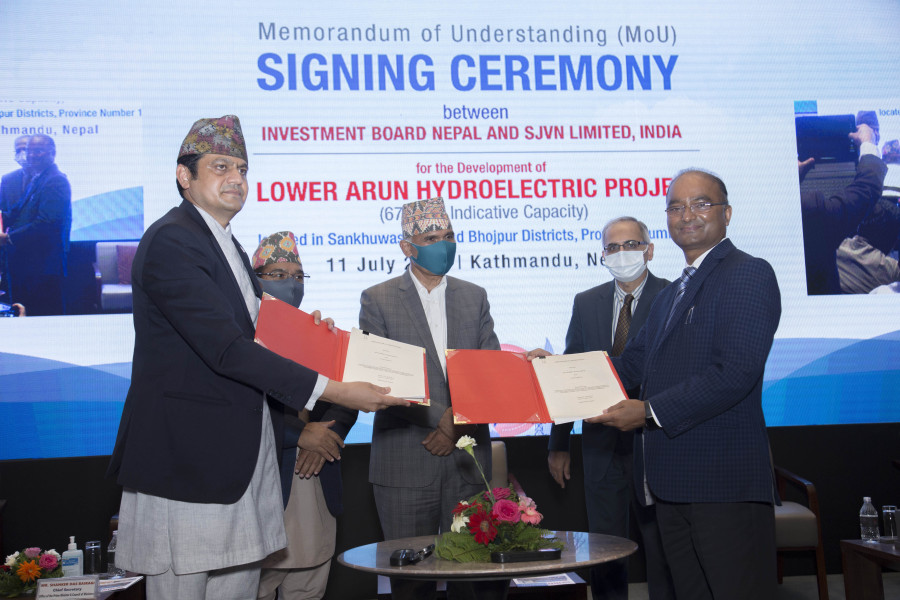National
Nepal, India sign deal for $1.3 billion Lower Arun Hydropower project
This is the second mega project undertaken by the southern neighbour after the $1.04 billion 900-MW Arun-3 hydroelectric project in the Arun river in 2018.
Post Report
Nepal on Sunday signed a pact with India’s state-owned Satluj Jal Vidyut Nigam to develop the 679-megawatt Lower Arun Hydropower project in eastern Nepal.
The $1.3 billion project, the single biggest foreign investment project, as per the 2017 cost estimates, is located in Sankhuwasabha and Bhojpur districts.
This is the second mega project undertaken by the southern neighbour after the $1.04 billion 900-MW Arun-3 hydroelectric project in the Arun river.
A memorandum of understanding was signed by the Investment Board of Nepal Chief Executive Officer Sushil Bhatta and Satluj Jal Vidyut Nigam Chairman and Managing Director Nand Lal Sharma in Kathmandu, on Sunday, the Investment Board said in a statement.
According to the board, the developer should complete the detailed project study of the project and submit the detailed project report for approval at the board within two years from the agreement date.
The project will be built under the build, own, operate and transfer (BOOT) model.
According to the statement, Finance Minister Bishnu Prasad Paudel, who is also the vice-chairman of the board, expressed commitment to extend necessary support to expedite and fast-track the project development.
According to Indian media reports, while India has been buying electricity from Bhutan, it is also supplying electricity to Bangladesh. The plan now is to include the option of building an overhead electricity link with Sri Lanka.
The project will not have any reservoir or dam and will be a tailrace development of Arun-3 hydro project, which will mean water re-enters the river for the Lower Arun project.
In 2018, Prime Minister KP Sharma Oli and visiting Indian Prime Minister Narendra Modi jointly laid the foundation stone for the Arun III Hydropower Project, remotely from Kathmandu.
SJVN's current installed capacity stands at 2,016 MW and it aims to be a 25,000 MW entity by 2040.




 11.96°C Kathmandu
11.96°C Kathmandu














